Innovation, insights and intrigue: UC Berkeley’s top stories from 2023
From emerging work on artificial intelligence to the announcement of Chancellor Carol Christ’s upcoming retirement to a flurry of new construction on campus, Berkeley faced and embraced the future.
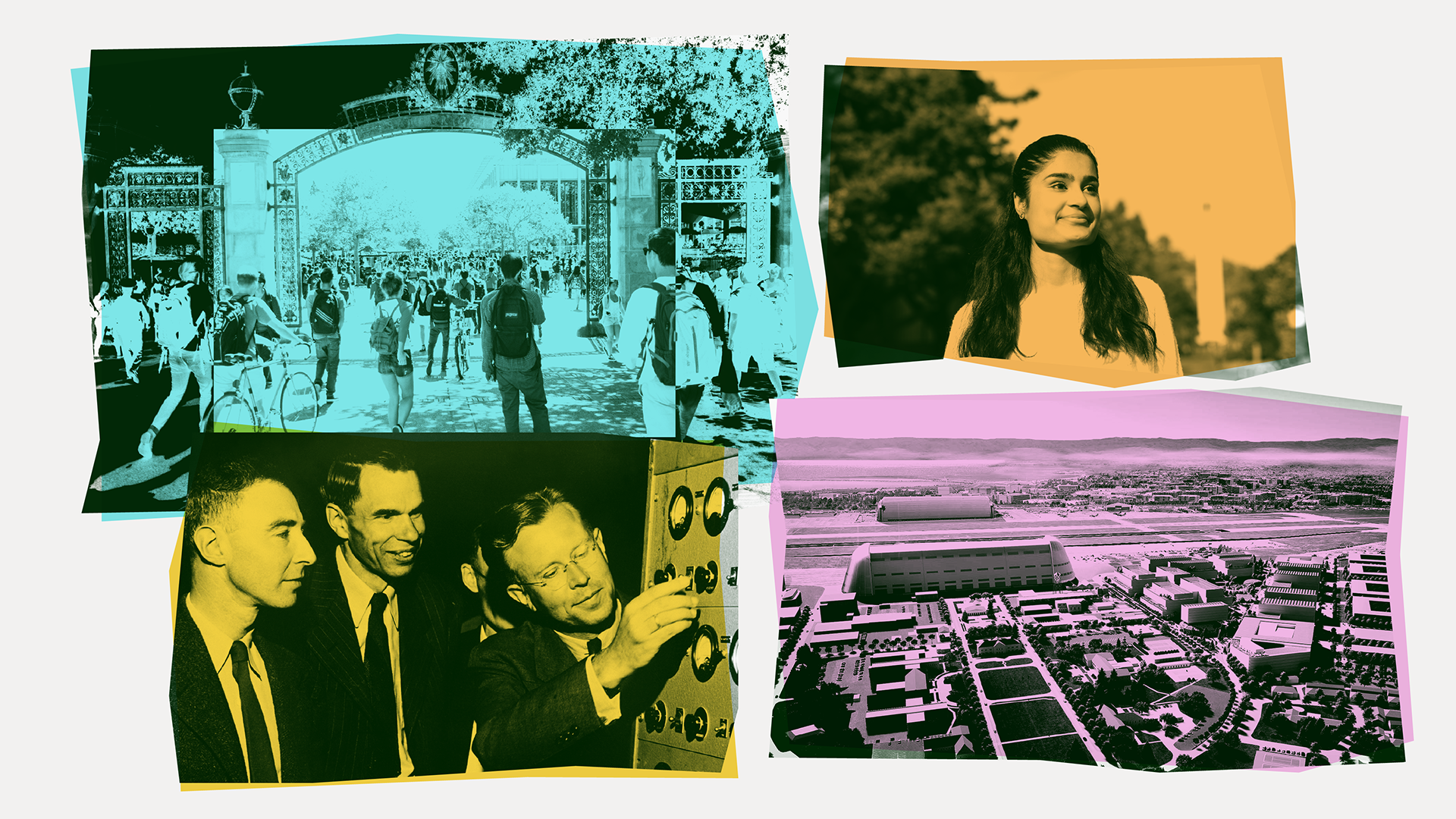
Graphic by Neil Freese/UC Berkeley
December 11, 2023
The year 2023 was a year of innovation and major change at UC Berkeley. From emerging work on artificial intelligence to the announcement of Chancellor Carol Christ’s upcoming retirement to a flurry of new construction on campus, Berkeley faced and embraced the future.
Much-needed student housing, a renovated and expanded student engineering center and a home for the campus’s first new college in 50 years were among the buildings springing up campuswide. Berkeley also announced the creation of a new center for aviation and space exploration located at NASA Ames’ Moffett Field in Mountain View. And campus experts made headlines discussing how, in the 1940s, physicist Robert Oppenheimer — the focus of the blockbuster movie Oppenheimer — made the physics department the center of American thought about the field of quantum mechanics.
As always, faculty members continued to contribute their expertise, most notably on breaking news ranging from the U.S. Supreme Court’s ruling on affirmative action to war crimes in Ukraine and the dangers of climate change. They even, for the first time, reconstructed Pink Floyd’s song, “Another Brick in the Wall, Part 1,” from brain recordings.
Here’s a look back at our top stories of the year.
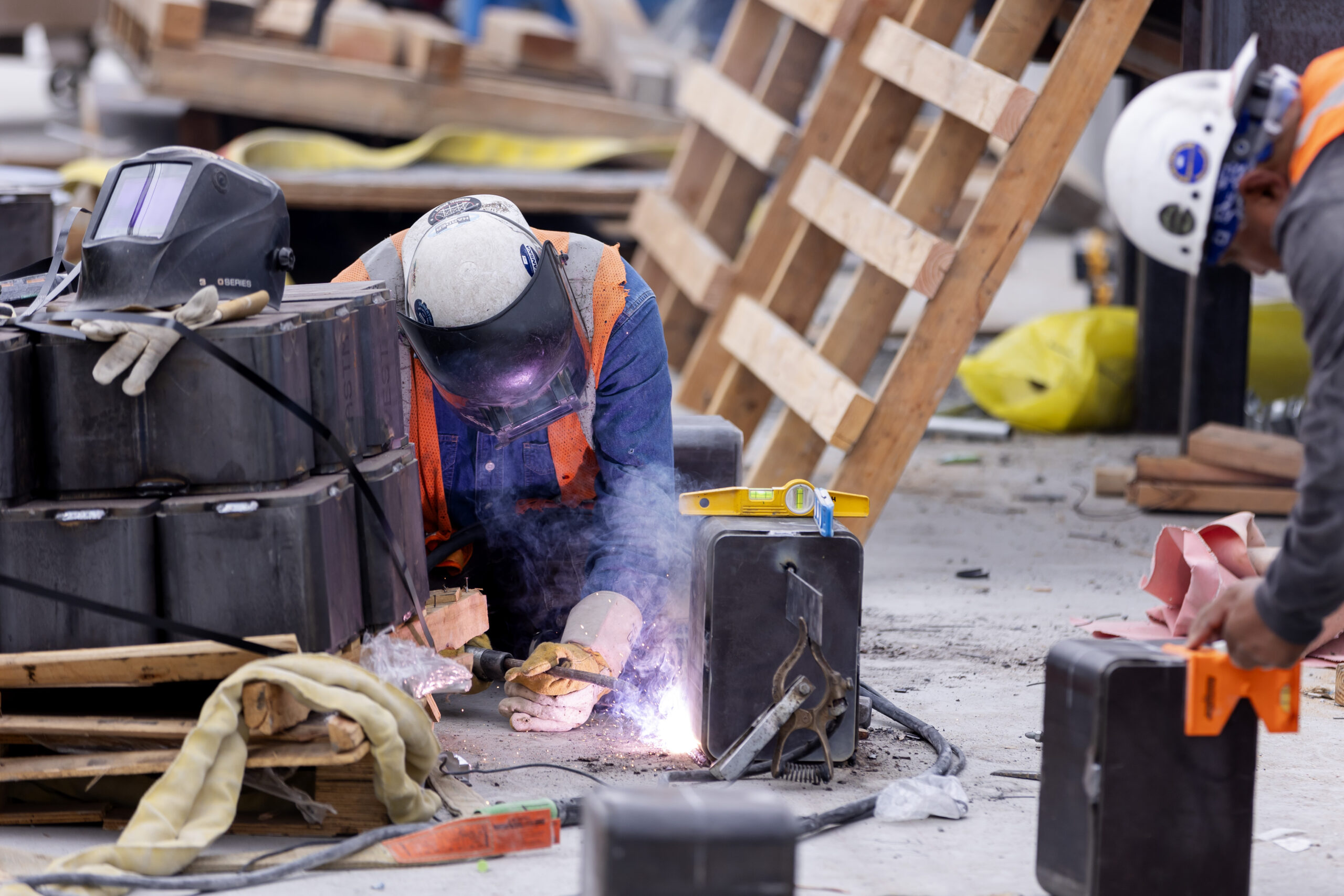
Brittany Hosea-Small for UC Berkeley
Flurry of major campus construction projects to mark new academic year
From north to south, east to west and all the way to the nearby city of Albany, UC Berkeley’s landscape was transformed in the fall by numerous large construction projects that will create much-needed student housing, a renovated and expanded student engineering center and a home for the campus’s first new college in 50 years.
Read more about new buildings on campus:
- Work begins on UC Berkeley’s new Undergraduate Academic Building
- UC Berkeley’s Disabled Students’ Program will get new home, renovations underway

Brain recordings capture musicality of speech — with help from Pink Floyd
As the chords of Pink Floyd’s “Another Brick in the Wall, Part 1,” filled the hospital suite, neuroscientists at Albany Medical Center diligently recorded the activity of electrodes placed on the brains of patients being prepared for epilepsy surgery.
The goal? To capture the electrical activity of brain regions tuned to attributes of the music — tone, rhythm, harmony and words — to see if they could reconstruct what the patient was hearing.
More than a decade later, after detailed analysis of data from 29 such patients, the answer is clearly yes.
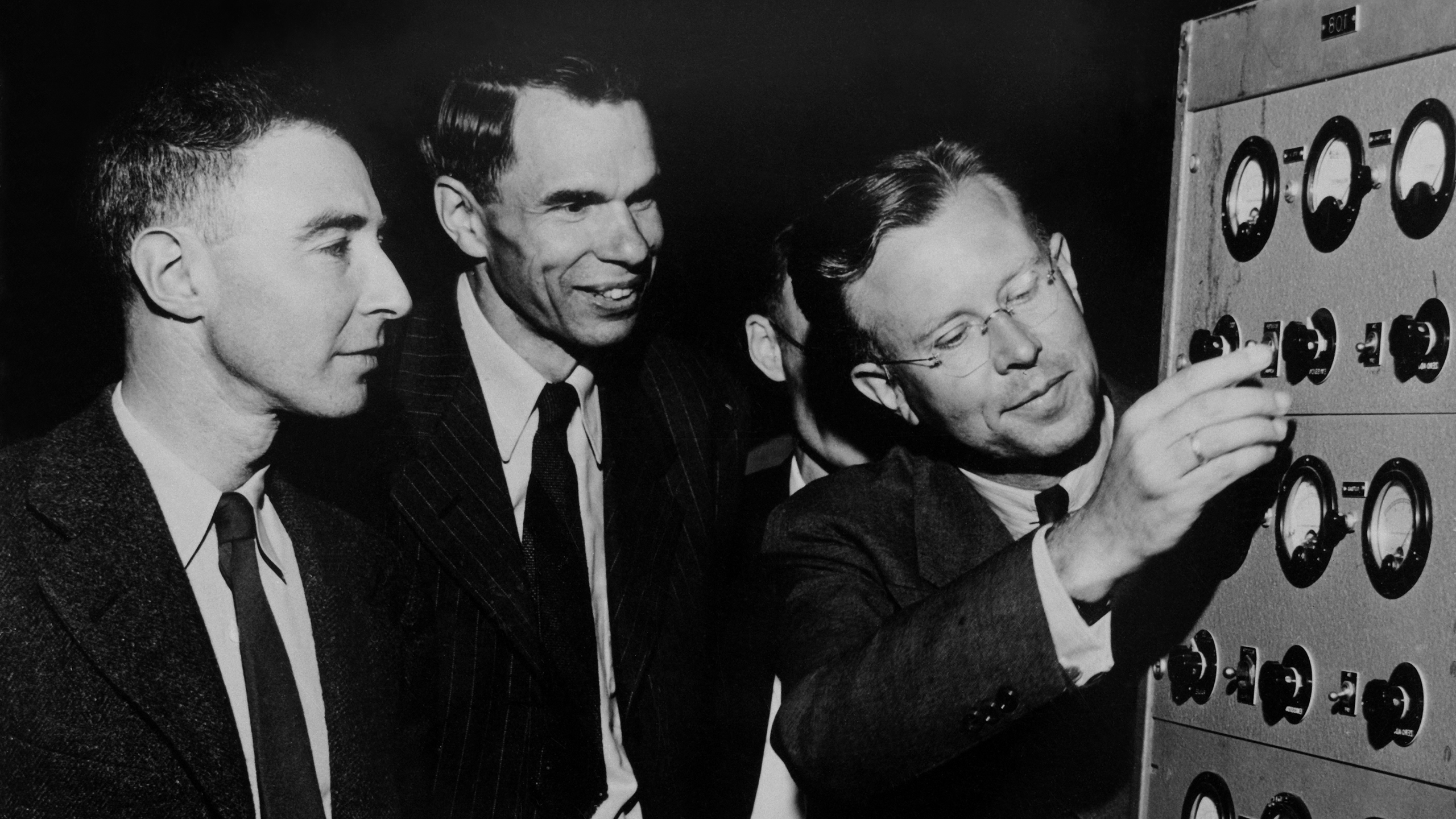
Courtesy of Berkeley Lab
Panel discusses Robert Oppenheimer’s Berkeley years
The story behind the summer blockbuster movie Oppenheimer, which opened across the nation last summer, began at UC Berkeley.
A 25-year-old J. Robert Oppenheimer arrived at Berkeley in fall 1929 as an assistant professor, and over the next dozen years established one of the greatest schools of theoretical physics in the U.S. — one that continues to this day. He made UC Berkeley’s physics department the center of American thought about the new field of quantum mechanics and how to apply it to atoms, nuclei and even neutron stars.
Listen to the panel discussion on the Berkeley Talks podcast or watch it on YouTube.
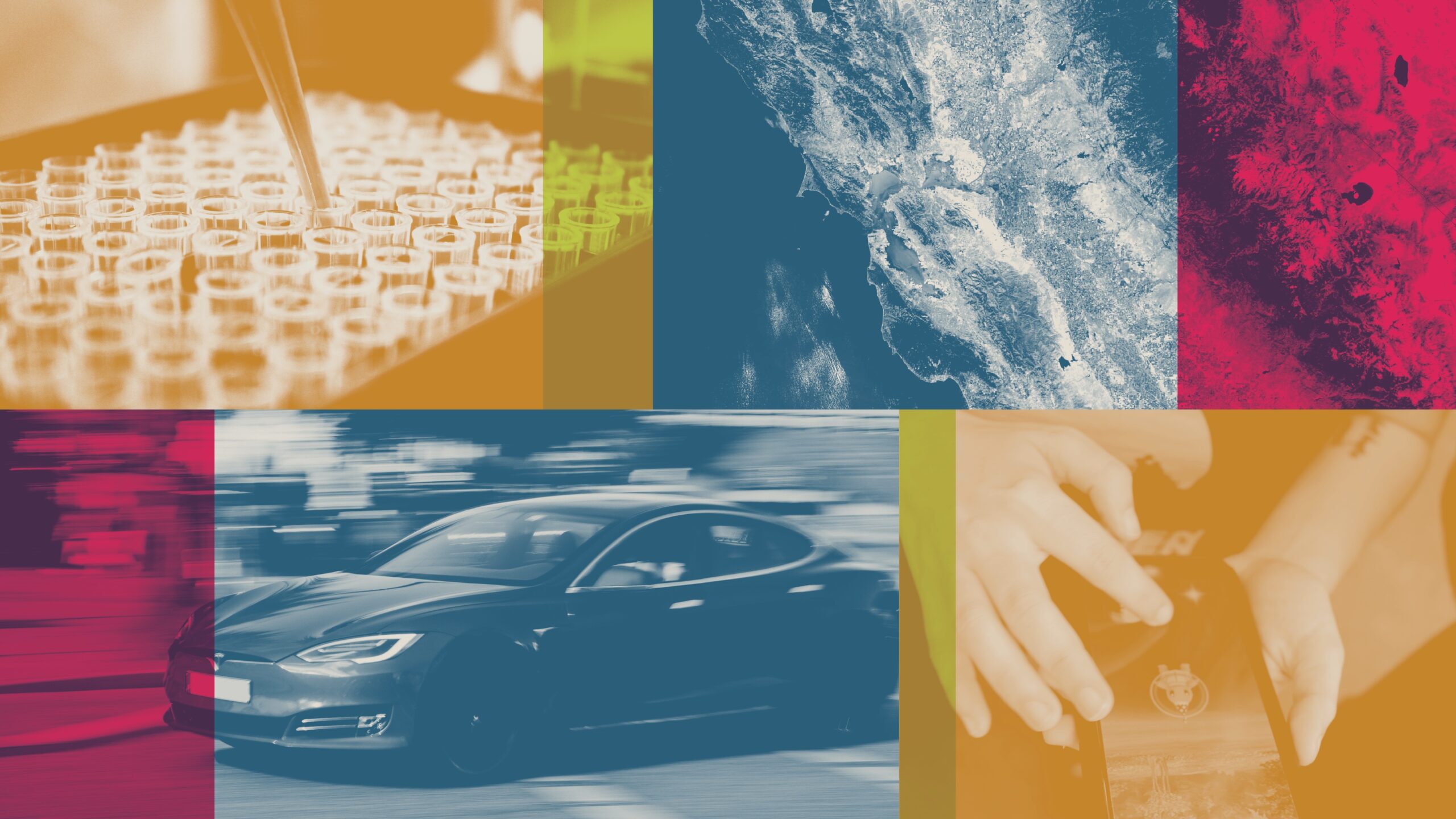
Neil Freese/UC Berkeley
A history of innovation: Berkeley entrepreneurs, companies that changed the way we live
The culture and spirit of innovation at UC Berkeley throughout history can be seen in the changemakers — the Berkeley students, researchers, entrepreneurs, faculty members and alumni — who have helped in countless ways to improve our lives and our world.
For more information about how the Berkeley community is creating innovative and equitable solutions to society’s greatest challenges, visit the Entrepreneurship at Berkeley site.
Also, read about student-entrepreneur Alishba Imran’s journey as a young pioneer in robotics and machine learning.
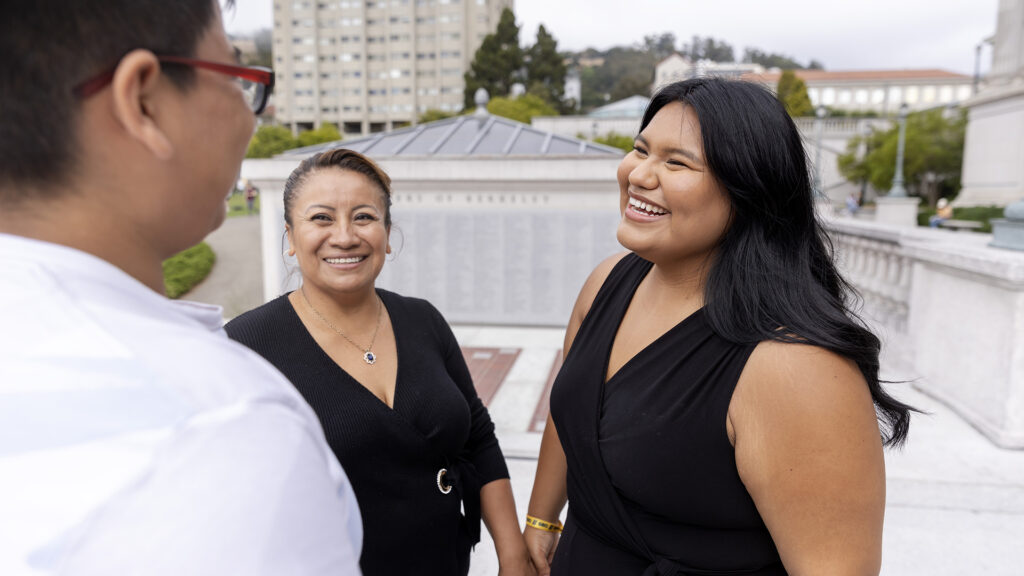
Brittany Hosea-Small for UC Berkeley
‘Grief can coexist with happiness’: How one student found her way to UC Berkeley
As a young kid growing up in Southern California’s Coachella Valley, Natalie Araujo didn’t like school. She felt unwelcome, like an outsider looking into a world she’d never fit into, no matter how hard she tried.
In second grade, though, things began to turn around. She had a bilingual teacher and was enrolled in an English language program. School slowly became a place where she felt she could thrive. But just two years ago, in the midst of the COVID-19 pandemic and a sudden family tragedy, her dream of going to college felt so far away, and she wasn’t sure she’d ever make it.
Now, as a first-year student at Berkeley, she plans to major in legal studies to pursue a career that combines her love of debate and of renewable energy — maybe in environmental law.
- Read about what’s new at UC Berkeley this year and other back-to-school stories on Berkeley News.
- Learn more about the Latinx Thriving Initiatives on the Berkeley Talks podcast.
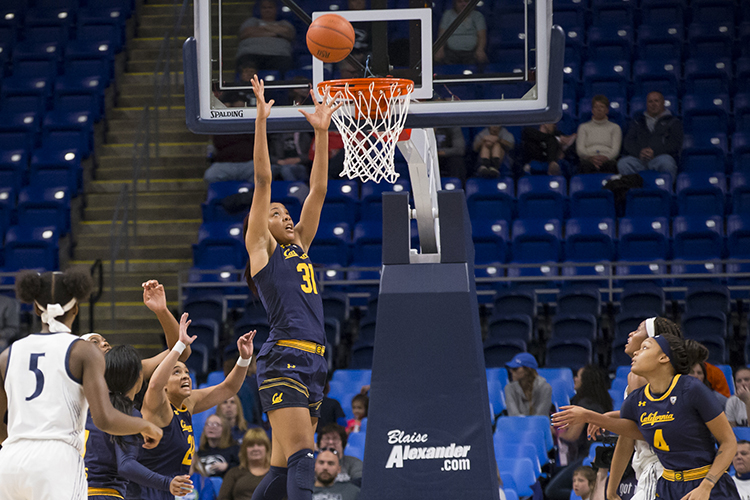
Mollie McClure/McClure Images
UC Berkeley to join Atlantic Coast Conference in 2024-2025
In September, Chancellor Carol Christ announced that UC Berkeley will join the Atlantic Coast Conference in the 2024-25 academic year. In the decision, made amid significant conference realignment across the country in recent years, campus leadership prioritized the needs of its student-athletes and Cal Athletics’ long-term stability, while maintaining the program’s essential role on the Berkeley campus.

Field Operations and HOK
Berkeley Space Center at NASA Ames to become innovation hub for new aviation, space technology
UC Berkeley is teaming up with NASA’s Ames Research Center and developer SKS Partners to create research space for companies interested in collaborating with UC Berkeley and NASA scientists and engineers to generate futuristic innovations in aviation, space exploration and how we live and work in space.
The Berkeley Space Center, announced in October, aims to accommodate up to 1.4 million square feet of research space on 36 acres of land at NASA Ames’ Moffett Field in Mountain View, leased from NASA.

Neil Freese/UC Berkeley (Source: Nikolay Vorobyev, Jade Koroliuk, Daniel Alvarado, Ilya Matveev, Ilya Budraitskis)
Rescuing dissent: Inside the yearlong mission to bring prominent Putin critics to UC Berkeley
In February 2022, Ilya Matveev knew his life was in jeopardy.
The prominent critic of Vladimir Putin had devoted his decade-plus academic life in Moscow and St. Petersburg to researching his country’s embrace of authoritarianism. But it wasn’t until the run-up to Russia’s invasion of Ukraine that he and his friend and fellow activist Ilya Budraitskis learned how aggressively the government was cracking down on dissenting voices like theirs.
So the scholars did what millions of Ukrainians and hundreds of thousands of Russians have done since the war began last year: They fled. What neither of them knew was that their ultimate destination would be UC Berkeley, more than 6,000 miles away.
Also, read:
- Missile sirens, research resolve: Ukrainians at Berkeley reflect on a year at war
- In Ukraine, Berkeley experts are shaping the legal fight against war crimes
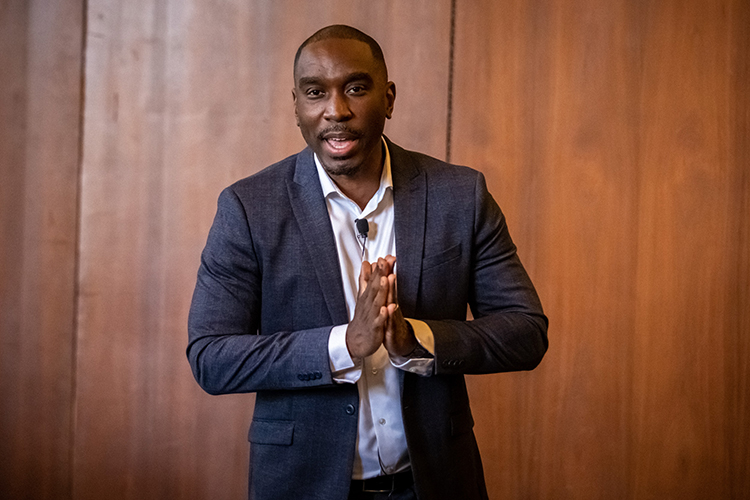
Courtesy of Ty-Ron Douglas
‘Justice is the juice’ of DEIBJ
We’ve heard the acronym DEIBJ a lot on campus, especially in the past few years. For those who might not know, it stands for diversity, equity, inclusion, belonging and justice. A growing number of people at UC Berkeley have positions dedicated solely to this incredibly important work.
In this Berkeley Voices episode, Ty-Ron Douglas, the associate athletic director of DEIBJ at Cal Athletics, explains the nuts and bolts of DEIBJ in his upbeat and clear-eyed way that he seems to apply to all things he does. He also talks about growing up in Bermuda, a precocious kid feeling like he didn’t belong; why sport is a legitimate academic discipline; and how “justice is the juice” of DEIBJ.

Jon Kenfield via Flickr
I say dog, you say chicken? New study explores why we disagree so often
Is a dog more similar to a chicken or an eagle? Is a penguin noisy? Is a whale friendly?
Psychologists at UC Berkeley say these absurd-sounding questions might help us better understand what’s at the heart of some of society’s most vexing arguments.
Research published in March shows that our concepts about and associations with even the most basic words vary widely. At the same time, people tend to significantly overestimate how many others hold the same conceptual beliefs.
It’s a mismatch that researchers say gets at the heart of the most heated debates, from the courtroom to the dinner table.
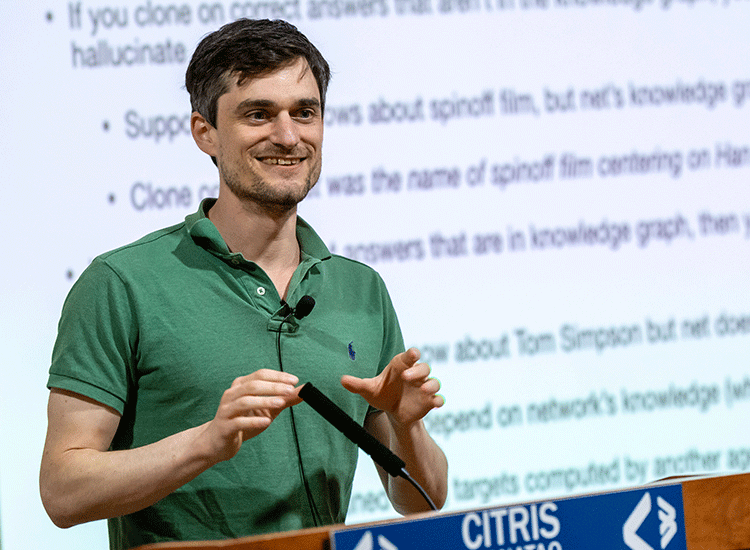
Jim Block/UC Berkeley
ChatGPT architect, Berkeley alum John Schulman on his journey with AI
John Schulman cofounded the ambitious software company OpenAI in December 2015, shortly before finishing his Ph.D. in electrical engineering and computer sciences at UC Berkeley. At OpenAI, he led the reinforcement learning team that developed ChatGPT — a chatbot based on the company’s generative pre-trained (GPT) language models — which has become a global sensation, thanks to its ability to generate remarkably human-like responses.
During a campus visit in April, Berkeley News spoke with Schulman about why he chose Berkeley for graduate school, the allure of towel-folding robots and what he sees for the future of artificial general intelligence.
Listen to a Berkeley Talks episode with Schulman, where he discusses making AI more truthful.
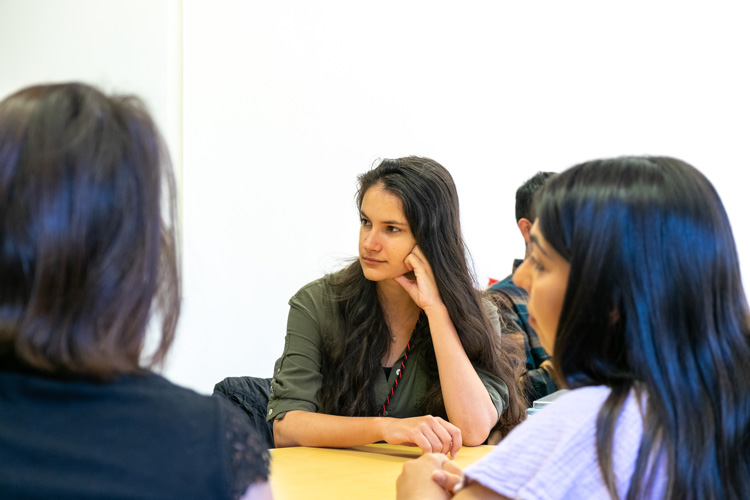
Sofia Liashcheva/UC Berkeley
For top graduating senior, a pirouette from ballet to human rights
Growing up, student Catey Vera dreamed of being a professional ballet dancer. At 8, she entered a ballet school and at 14, she began studying dance at the University of North Carolina’s School of the Arts. But soon after, she found out she had ovarian cancer. The surgery to remove the tumor damaged her stomach muscles and forced her to choose a new career path — a choice that she embraced and made the most of.
At Berkeley, she worked with Berkeley Law’s Human Rights Center, where she investigated alleged war crimes in Myanmar. She also worked at Human Rights Watch, served as president of the Prytanean Women’s Honor Society and served as co-president of the Pointe of Berkeley Ballet Company.
In May, Vera, who earned a B.A. from Berkeley with a major in cognitive science and a double minor in data science and interdisciplinary human rights, was selected to receive the University Medal, the highest honor for a Berkeley graduating senior.
Also, read a profile about a student who took 30 years and 100 flights to graduate and other graduation 2023 stories.
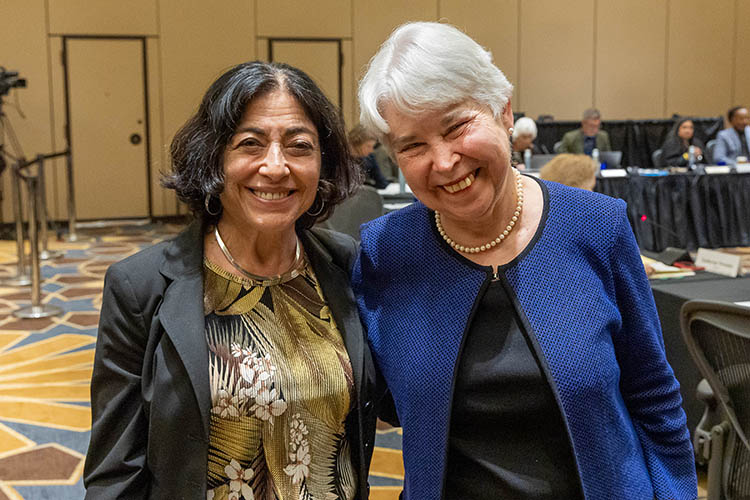
Reed Hutchinson/UCLA
UC Berkeley gets new college, its first in 50 years
The UC Board of Regents voted in May to establish UC Berkeley’s College of Computing, Data Science, and Society (CDSS), the campus’s first new college in more than 50 years.
The college will develop, implement and share high-quality, ethics-oriented and accessible curricula, educating a diverse student body in data science, computing and statistics. It will also create new fields, applications and solutions to societal problems through groundbreaking, multidisciplinary research that capitalizes on Berkeley’s excellence across campus.
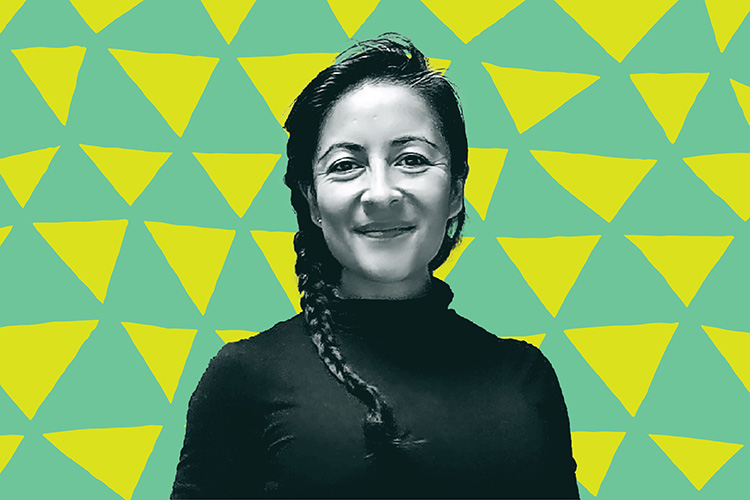
Neil Freese/UC Berkeley
Why Indigenous ‘Spirit medicine’ principles must be a priority in psychedelic research
Yuria Celidwen was born into a family of Indigenous mystics, healers, poets and explorers from the highlands of Chiapas, Mexico.
“I grew up with one foot in the wilderness and another in the magical realism of Indigenous culture,” said Celdiwen, a native of Indigenous Nahua and Mayan descent. “We carry intergenerational trauma, and also intergenerational bliss.”
Today, as a senior fellow at UC Berkeley’s Othering and Belonging Institute, Celidwen is exploring how Western institutions can ethically approach the growing research and use of psychedelics as viable medical therapies. She recently led a study published in the journal The Lancet Regional Health — Americas.
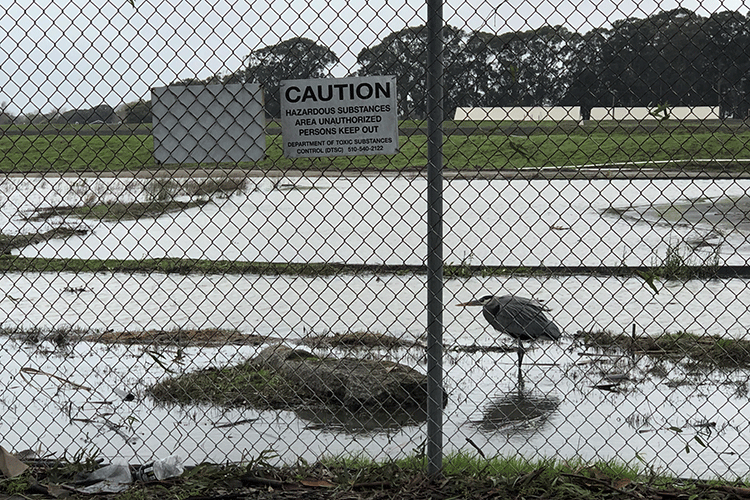
Courtesy of Kristina Hill
Rising groundwater threatens thousands of toxic sites in the Bay Area
As climate change brings devastating storms and rising tides to California, many coastal communities face another threat, one that’s hidden and trickling up from below.
When sea levels rise, dense saltwater moves inland beneath the soil, pushing up the layer of fresh groundwater that floats above it. In many coastal areas, even a few inches of sea level rise can raise the groundwater table enough to flood basements, leak through cracks in sewer lines and disrupt underground infrastructure.
It can also seep into toxic sites from below, mobilizing hazardous materials and spreading pollutants far beyond the limits of the original contamination.
A new report in June found that over the next century, rising groundwater levels in the San Francisco Bay Area could impact twice as much land area as coastal flooding alone, putting more than 5,200 state- and federally managed contaminated sites at risk. Many of these sites are near communities already burdened with high levels of pollution, including West Oakland, the waterfront in Richmond and Hunter’s Point in San Francisco.
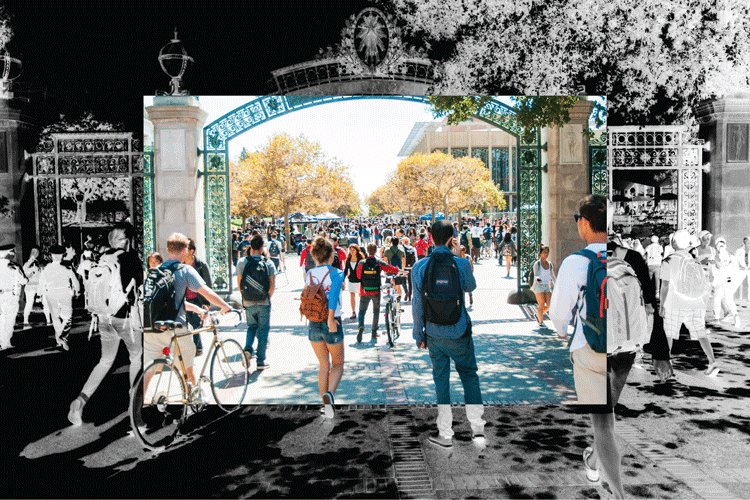
Berkeley leaders, scholars react to Supreme Court’s decision on affirmative action
Chancellor Carol Christ and several other top UC Berkeley officials said the U.S. Supreme Court’s ruling in June, that public and private universities cannot use race as a factor in admitting students, is regrettable. They warned the decision will reduce opportunities for people of color and thwart the nation’s progress toward racial equality.
Berkeley scholars have played critical roles in writing policy and arguing the law on affirmative action at a national level, while others have researched the educational and social impact of race-based admissions. Berkeley News obtained a range of campus reactions to the ruling.
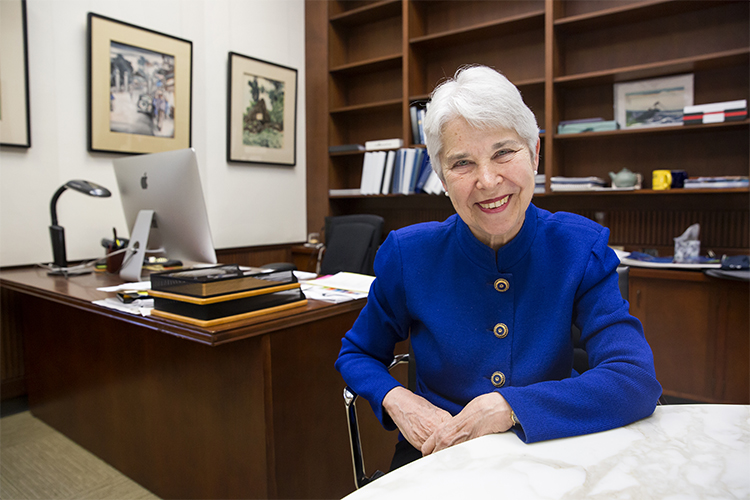
Brittany Hosea-Small for UC Berkeley
Chancellor Carol Christ announces 2024 retirement, plans for ambitious year
In June, Chancellor Carol Christ sent the following message: “It is with decidedly mixed feelings that I am writing to let you know I will be stepping down and retiring next summer, at the end of June 2024. My time in office has been meaningful and rewarding beyond compare, and I will sorely miss the challenges, the opportunities and the daily interactions with the members of Cal’s amazing extended family.”
Also, read: UC president launches search for next Berkeley chancellor.